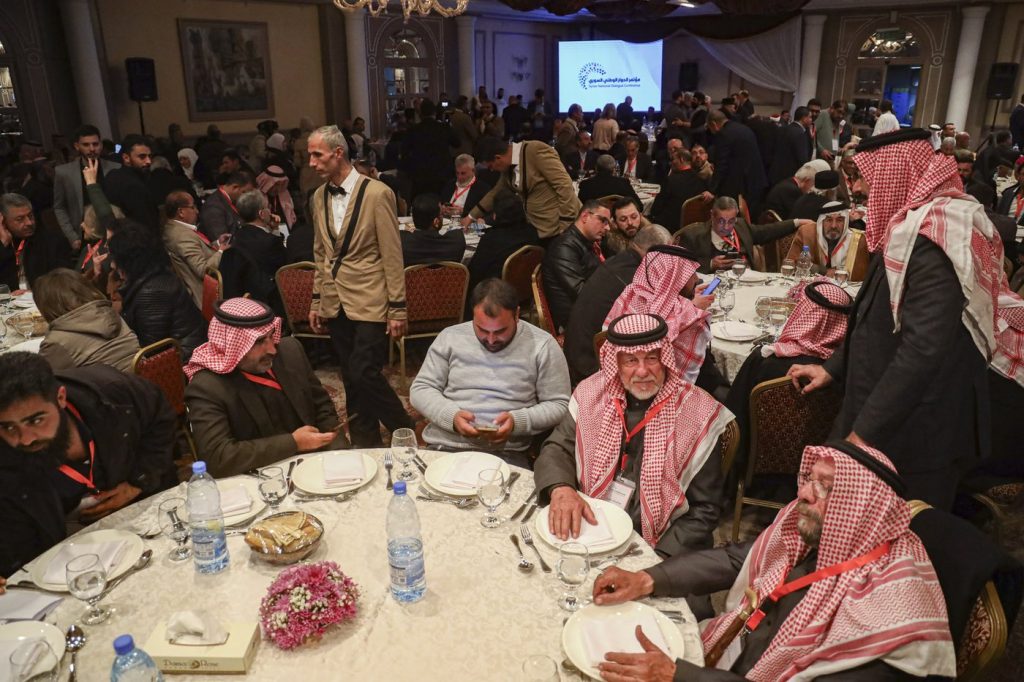Syria's new Islamist rulers have initiated a national dialogue conference in Damascus, marking a significant step towards rebuilding the country following the fall of former President Bashar Assad and nearly 14 years of civil war. Approximately 600 representatives from various regions of Syria were invited to this gathering, hosted by Hayat Tahrir al-Sham (HTS), an Islamist former insurgent group that played a central role in the offensive that led to Assad's ouster in early December.
Interim President Ahmad al-Sharaa emphasized the necessity for Syria to construct its future independently, stating, "Just as Syria has liberated itself by itself, it is appropriate for it to build itself by itself." He described the current situation as an “exceptional and rare historical opportunity,” urging attendees to utilize every moment to serve the national interests and honor the sacrifices made during the conflict.
The new authorities promise an inclusive political transition as they take charge, and their actions will be closely monitored by both the Syrian populace and the international community. This scrutiny includes considerations from countries deliberating on whether to lift sanctions that were imposed during Assad's authoritarian regime. Syria contends with formidable challenges, including economic reconstruction, rehabilitation of war-torn infrastructure, establishment of a new constitution, and accountability for war crimes.
Concerns persist among Syria’s minority groups, such as Kurds, Christians, Druze, and members of Assad’s Alawite sect, regarding their future under the new regime. Though violence and collective punishment have not surged as anticipated, many are skeptical of HTS’s promises of inclusive governance, given its former links with al-Qaida. The conference organizers assert that representatives from all of Syria's communities were invited, although participation levels among minority groups remain unclear.
The dialogue aims to yield non-binding recommendations for interim governance ahead of drafting a new constitution and establishing a new government. Moreover, the new leadership faces the daunting task of integrating former insurgent factions into a cohesive national army that claims authority over all Syrian territory. Notably, some armed groups, particularly the U.S.-backed Kurdish-led Syrian Democratic Forces, have resisted disarming and disbanding their units.
Israeli Prime Minister Benjamin Netanyahu recently stated that Israel will not permit the newly formed Syrian army or HTS to operate in areas south of Damascus. Following Assad's fall, Israeli forces have embedded themselves in southern Syria near the Israel-annexed Golan Heights, indicating a commitment to maintaining their presence indefinitely.
Although the new rulers have yet to directly address Netanyahu's remarks, al-Sharaa asserted at the conference that Syria must "firmly confront anyone who wants to tamper with our security and unity." Interim Foreign Minister Asaad al-Shibani proclaimed that the new government "will not accept any violation of our sovereignty or the independence of our national decisions." Furthermore, he highlighted efforts to restore diplomatic relations with both Arab and Western nations and to advocate for the lifting of sanctions imposed during Assad's reign.










